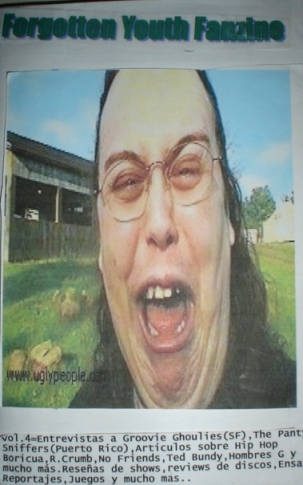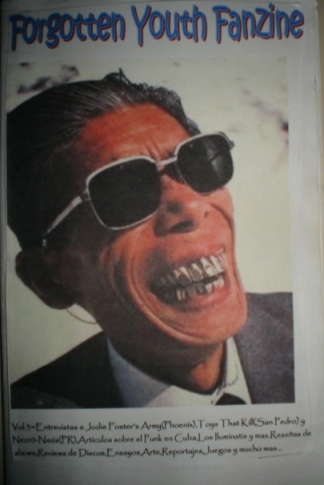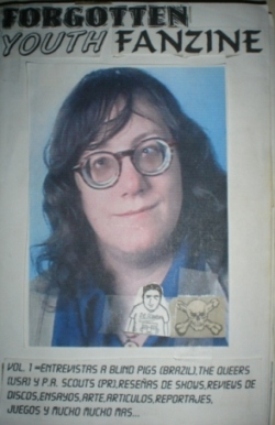
Hip Hop music was created by African-American New Yorkers in the late 70s and early 80s. But in that early scene a couple of
puertoricans like DJ Disco Wiz, Prince Whipper Whip, Prince Markie Dee and Wise from Stetsasonic made their contribution to the growth. By 1985, the first rap in Spanish arrived with
Vico-C, born in New York and raised in Puerto Rico. His influence in the spanish-speaking world is undeniable in the late 80s and early 90s. All latin american countries as well as Spain by the 90s developed a hip hop scene in their own kind of way.
In Spain, hip hop evolved into a popular genre between their youth with major acts like
Violadores del Verso, Nach, SFDK or Tote King along with minor acts like Los Chikos del Maíz, Jesuly, Shogun XL or Dogma Crew. These acts are not millionaire celebrities like the major north american rappers or the reggaeton artists but have the respect of the entire spanish-speaking community with their good lyrics, great beats and non-gangster attitudes. Any of these spaniard acts goes to Latin America and sold-out their shows to loyal fans.
In Latin-America has remained very underground. Events like
Red Bull Batalla de los Gallos or the Hip Hop Summits/Festivals in Venezuela, Colombia or Dominican Republic have created a sense of unity between the countries in the Caribbean, Central America, South America and the latinos in the US.

Puerto Rico is a unique case because of three reasons:
1-Reggaeton's huge impact in the population helped Hip Hop became a reactionary underground movement rebelling against the status-quo in the late 90s with rappers like Ovrdoze (
Tek-1 and
J-Mo), Conciencia Poética (Luís Díaz, 79 and producer Yall'zee), EA Flow, Ciencia Fixión (Dr.Who, Centro, Dreuxifer and DJ Nature from the Texas), Mad Steelo, Velcro, Welmo, Nebula, No Mel Syndicate, Gunzsmoke, etc.
2-The majority of these rappers grew up on Cable TV (Yo! MTV Raps for example) as the same time of stateside americans.
3-The constant flux of puertoricans between New York and Puerto Rico because of the US citizenship of puerto ricans helped create an understanding of hip hop culture very early on unlike the rest of spanish-speaking countries.
The result is a tight scene of great mc's/producers/dj's with an US/Early spanish rap pioneers like Vico-C influence who can flow well in both spanish and english. Their lyrics are intelligent as most of them are middle-class and college-educated (Velcro is a Harvard grad and Luís Díaz has an MA degree, for example) or self-educated in socio-political themes. Also, most of them have communication with stateside puerto ricans who are involved with hip hop in their own states (Babalú Machete, Joell Ortiz and Thirstin Howl III from New York, Yeyo of "The Dey" from Miami, Temperamento from Rhode Island, Chino XL from New Jersey or Termanology from MA, for example). These stateside puertoricans collaborate with the islanders (Tropical Storm compilation of the late 90s made by Babalu Machete, for example) very often helping to create a sense of unity between puerto rican rappers in both places.

Cuba is another unique case because of their socio-political status. They have created the most fierce, well-read and real hip hop since the glory days of hip hop in the late 80s and early 90s. Acts like
Randy Acosta, Papá Humbertico, Los Aldeanos, Los Paisanos and Anónimo Consejo are praised by fellow spanish-speaking rappers around the world. Their most famous export is Orishas, who moved to Europe and gained success in countries like Spain and France although their style is more commercial. Hardcore-Rap icon Randy Acosta, now living in Finland, with two great albums under his wing like "Jodido Protagonista" and "Zangre, Zudor y Lagri+" made huge impact in latin america. Other notable export is Mahoma from Explosión Suprema, married to andalusian rapper La Mala Rodríguez, and one of her hypemans. In all, Cuban hip hop is mostly underground, political and very real.
Other countries like Chile (Makiza, Tiro de Gracia, Némesis and ZicutaEjecuta)
and México (Boca Floja, Cartel de Santa and Control Machete) have big rap artists. Also there's hip hop culture in Dominican Republic (led by Lápiz Consciente, Espadasofia, Circuito Negro, etc.), Argentina (Frescolate; winner of the Red Bull battle in 2005), Colombia ( the most famous being Tres Coronas and La Etnnia) and the rest of latin america.
To conclude, hip hop in spanish began in Puerto Rico in 1985 but did not evolved into a full fledged culture because of the reggaeton virus. It remain underground with high-level artists with no media exposure. Stateside puerto ricans have helped the scene but not that much to compete with the radio-friendly reggaeton. In Spain, it became a great youth culture with major acts that can live from the music and are icons in Spain and Latin America. Cuba remains as the purest form of the genre and mainly reflects the reality of cuban life. Mexico and Chile have greater hip hop scenes but don't transcend to the whole lot of spanish-speaking countries. And the rest of the countries have small scenes but serves as the outlet for the youth to fight against their social inequalities.
Post Scriptum: Highlighted are the most important artists but feel free to lookout for any of these spanish-speaking rap artists through their official webpages or myspaces. Very recommended.












